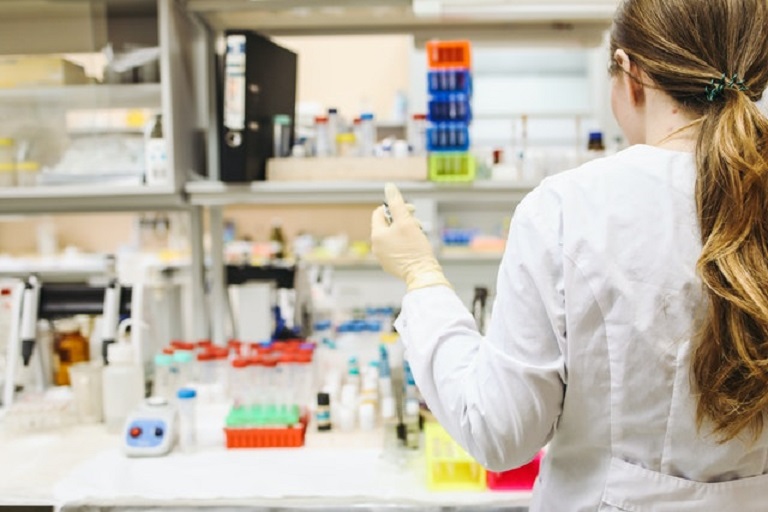6 Tips to Help You Become a Pharmacist
Pharmacists are medication experts with extensive knowledge about pharmaceuticals’ safety and effective use. After getting a prescription from a doctor, a pharmacist will advise you on brands of medication, side effects, proper dosages, safe storage, and potential drug-to-drug interactions.
A career as a pharmacist means partnering with healthcare providers and pharmaceutical companies to ensure safe pharmaceutical practices. The pharmaceutical market, which is currently valued at $1.27 trillion, is steadily growing in development, research, testing, and distribution, making pharmacy a highly lucrative and marketable career.
If you are interested in becoming a licensed pharmacist, here are the steps.
Complete Pharmacy Prerequisites
The first step to earning a Doctor of Pharmacy degree is completing a two-year degree program, which majorly involves taking prerequisites, such as statistics, biochemistry, biology, physics, psychology, and mathematics.
You can apply for a postgraduate professional degree program before completing all the credits, but you will have to wait to begin the postgraduate program. Pharmacy School Admission Requirements (AACP) vary from one school to another as some might require more than one course per subject area.
Once you identify a preferred pharmacy school, refer to the school directory or PharmCAS Compare Programs to know the admission prerequisites.
Take the Standardized Admission Test
The Pharmacy College Test (PCAT) is a standard test endorsed by the American Association of Colleges of Pharmacy (AACP) as the official admission test into pharmacy college. The Pharmacy College Test is designed to assess an applicant’s academic ability and scientific knowledge needed to start a pharmaceutical course.
The test runs for four hours, within which the candidates are expected to complete 240 multiple-choice questions and two writing topics in the pharmaceutical field. Each pharmacy college has its own pass score (usually above the 50th percentile), which you need to know before taking the test. However, to join a competitive pharmacy school, you may want scores about the 70th percentile.
Earn a Doctor of Pharmacy Degree
A stand-alone doctor of the pharmacy degree program in the United States requires at least two years of undergraduate coursework and four years of professional study. The duration that it takes to complete a doctorate of the pharmacy degree program is shorter if you join the program two or three years after undergraduate study.
Ensure that the Degree of Pharmacy program is ACPE accredited to get a pharmacist license. An ACPE certification is necessary since it promotes quality pharmacy education. During the Doctor of Pharmacy program, you will complete 2,000 hours of clinical experience, maintain a cumulative GPA of 2.7, and research and write a dissertation.
Apply for a Pharmacy Residency Program
A pharmacy residency program allows you to apply the skills and knowledge during the Doctor of Pharmacy program to real situations, settings, and patients. During the program, you will be exposed to different areas of pharmaceutical practice and acquire extensive knowledge about the varied career paths in pharmacy.
Professional student pharmacists can apply for residency programs during the graduate program or after graduation. Nonetheless, completing a residency program after graduation is preferred as it helps start a career in clinical pharmacy. In addition, the residency program will help you define your career goals and gain perspective on different dimensions of pharmacy.
Take Licensure Exams
After completing the Doctor of Pharmacy degree program, you must complete two pharmacy licensure exams – the North American Pharmacist Licensure Exam (NAPLEX) and the Multistate Pharmacy Jurisprudence Exam (MPJE).
The NAPLEX is usually taken immediately after graduating from pharmacy school to assess general practice knowledge. Foreign-educated pharmacists can also take the NAPLEX exam after completing the FPGEC certification.
A minimum score of 75 is required to pass the NAPLEX Exam. On the other hand, the MPJE is a 2.5-hour exam developed by the National Association Boards of Pharmacy to evaluate knowledge of pharmacy law. Like the NAPLEX, the passing score for the MPJE is 75.
Consider Post-Doctoral Training
If you are interested in working in specialized pharmaceutical fields like psychopharmacology and pharmacoepidemiology, consider joining a post-doctoral training program. A postdoctoral training program will advance your skills and knowledge in nursing and position you for career growth.
Consider online CME courses to advance knowledge in disease management, diagnosis, and treatment selections. CME courses offer great convenience as you can earn the credits anywhere. Continuing education is necessary for the pharmaceutical field because of the changes in the industry relating to pharmacological law, mental health, and pharmaceutics.
Wrapping Up
A pharmacy remains a lucrative and marketable career because of the growth of the pharmaceutical industry. Like other medical-related courses, becoming a pharmacy requires years of training to acquire the knowledge and skills needed to safely and effectively use pharmaceuticals. You can become a knowledgeable pharmacist and maintain your license through these tips.


















